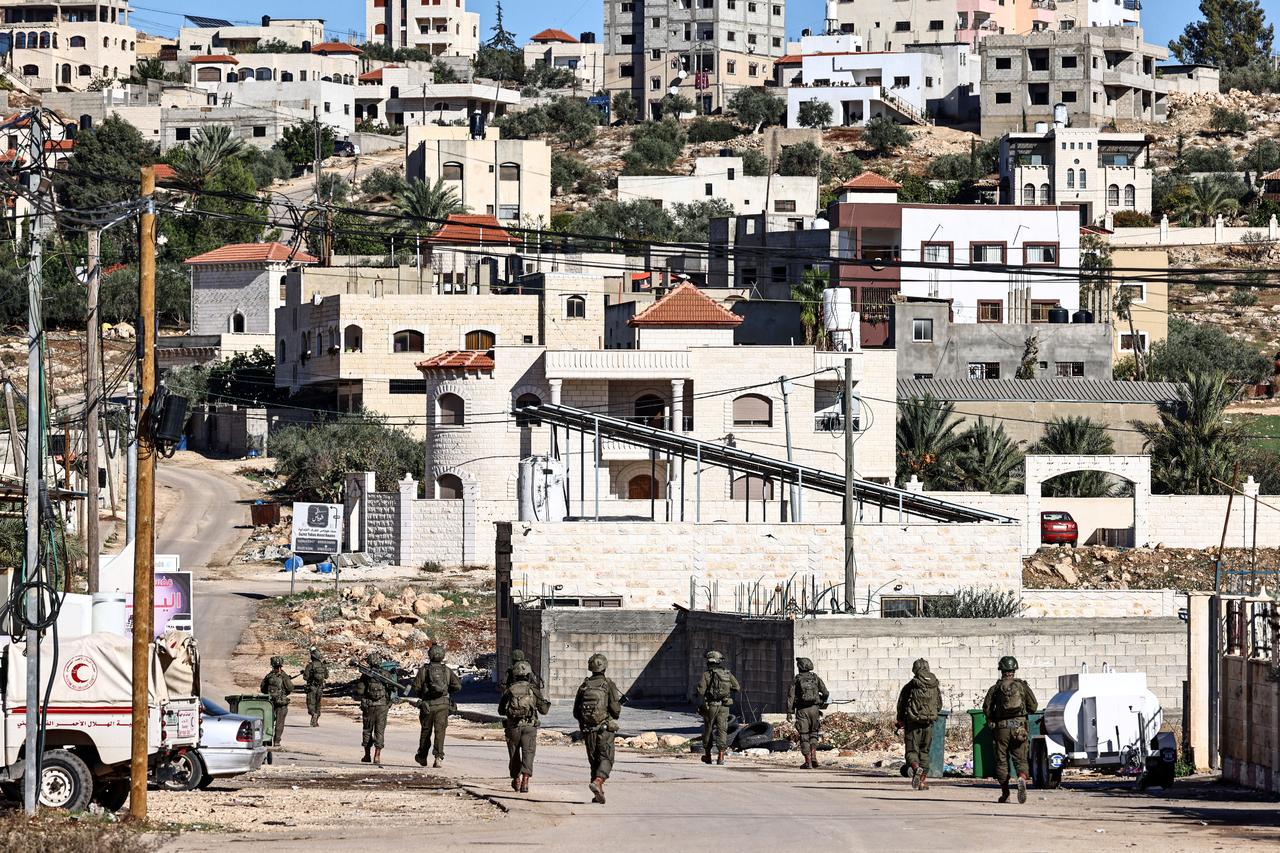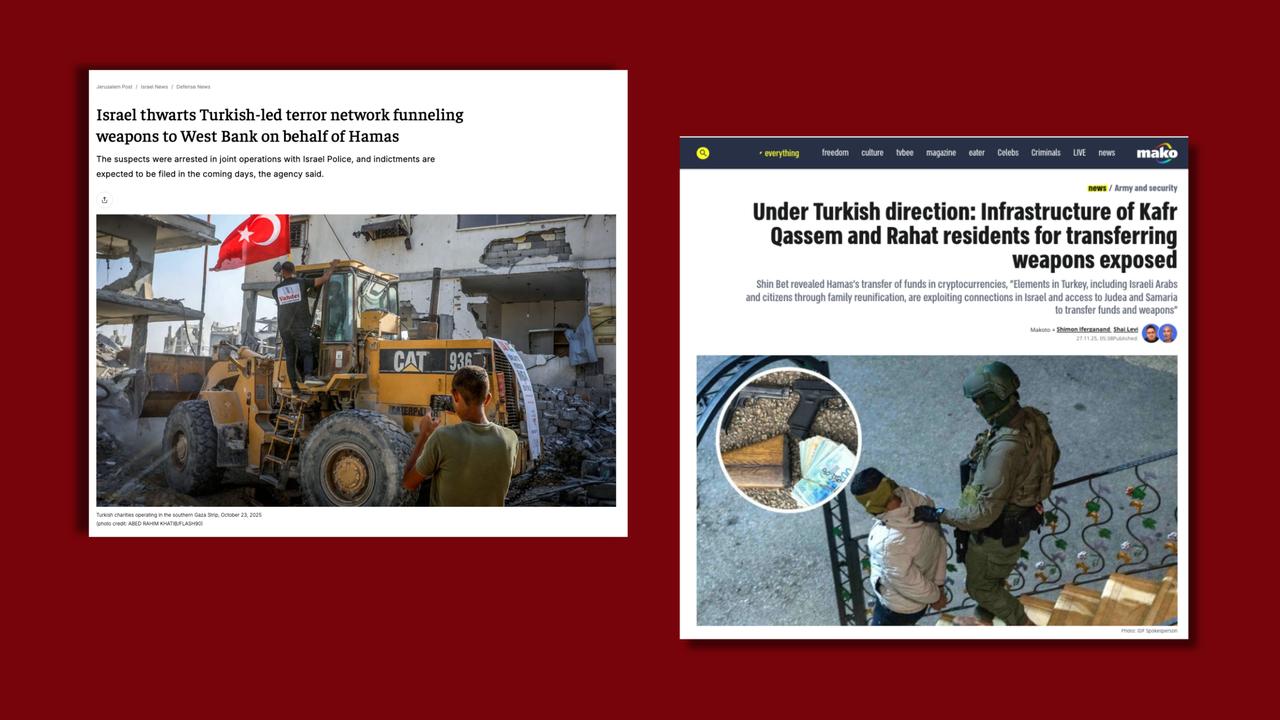
Israel’s security services this week announced the arrest of several of its citizens accused of transferring funds and weapons to the West Bank on behalf of Hamas.
The media framing highlighted an individual residing in Türkiye, leading some outlets to describe the case as “Türkiye-led.”
However, no evidence has been presented suggesting institutional support, governmental direction, or involvement by Turkish authorities. The individual in question is a private Israeli citizen who relocated abroad years ago, and the allegation centers on personal ties rather than any state-level channel.
The financial route cited in the announcement relies on a regional crypto platform operating across multiple countries. Israeli officials did not claim regulatory failures, compliance issues, or coordination with Turkish institutions.
The Israeli media narrative also masks the fact that the operational components of money conversion, weapons procurement, and logistics took place entirely inside Israel.
Rather than a foreign-led effort, the allegations describe an internal network shaped by local brokers, local arms dealers, and local financial channels.

According to the details released, the weapons were sourced in the Negev, purchased from Israeli arms dealers, and transferred through Israeli intermediaries into the West Bank.
The funds, reportedly moved initially through cryptocurrency, were converted into cash by Israeli money changers inside the country.
These features reflect long-standing issues within Israel’s domestic arms market and financial ecosystem, which are areas repeatedly flagged by Israeli analysts and law enforcement as weak points exploited by criminal and militant networks.
None of the public information indicates external coordination beyond the personal involvement of an Israeli citizen living abroad.
The pattern closely resembles previous cases in which local brokers leveraged family ties and informal channels across Israel and the West Bank.
In this context, characterizing the network as directed from Türkiye obscures the structural vulnerabilities inside Israel that enable such transactions.
One notable aspect of the announcement is the absence of scrutiny directed at the crypto exchange through which funds reportedly passed. If the platform played a meaningful role in illicit transfers, it would typically trigger questions around compliance, reporting obligations, or cross-border cooperation.
None of these issues appeared in the media statements.
Israeli authorities also did not indicate that the platform or the intermediaries involved in converting cryptocurrency into cash are under investigation. This lack of engagement suggests the platform functioned as a neutral conduit rather than a coordinating actor.
The omission further underlines that the case revolves around individual activity rather than the involvement of a state, a company, or an organized cross-border structure.
For the Israeli domestic audience, linking the case to an individual in Türkiye may also resonate politically, given that bilateral relations remain strained. Ankara’s diplomatic posture on Gaza and the West Bank, as well as its criticism of Israeli military actions, provides the backdrop against which such allegations are interpreted.
Some Israeli media coverage displayed images of Turkish nongovernmental organizations (NGOs), including civil-society organizations unconnected to the allegations. Though not mentioned in the security briefing, their visuals appeared in reports summarizing the case.
Turkish aid work in Gaza after the ceasefire had drawn some concerns from the far-right, Jewish supremacist groups.
For groups active in humanitarian or community work, being visually linked to a security-related allegation carries reputational consequences.